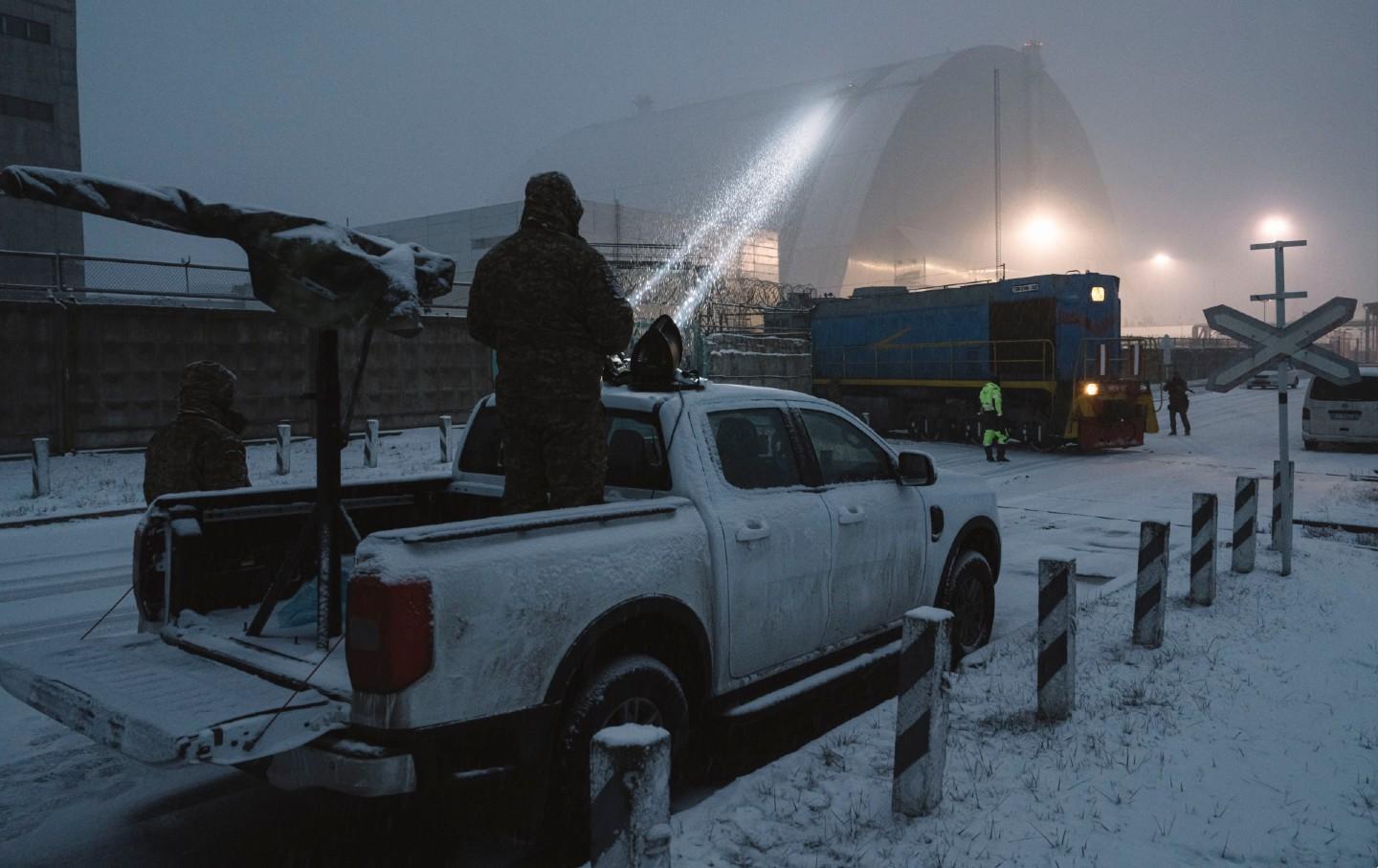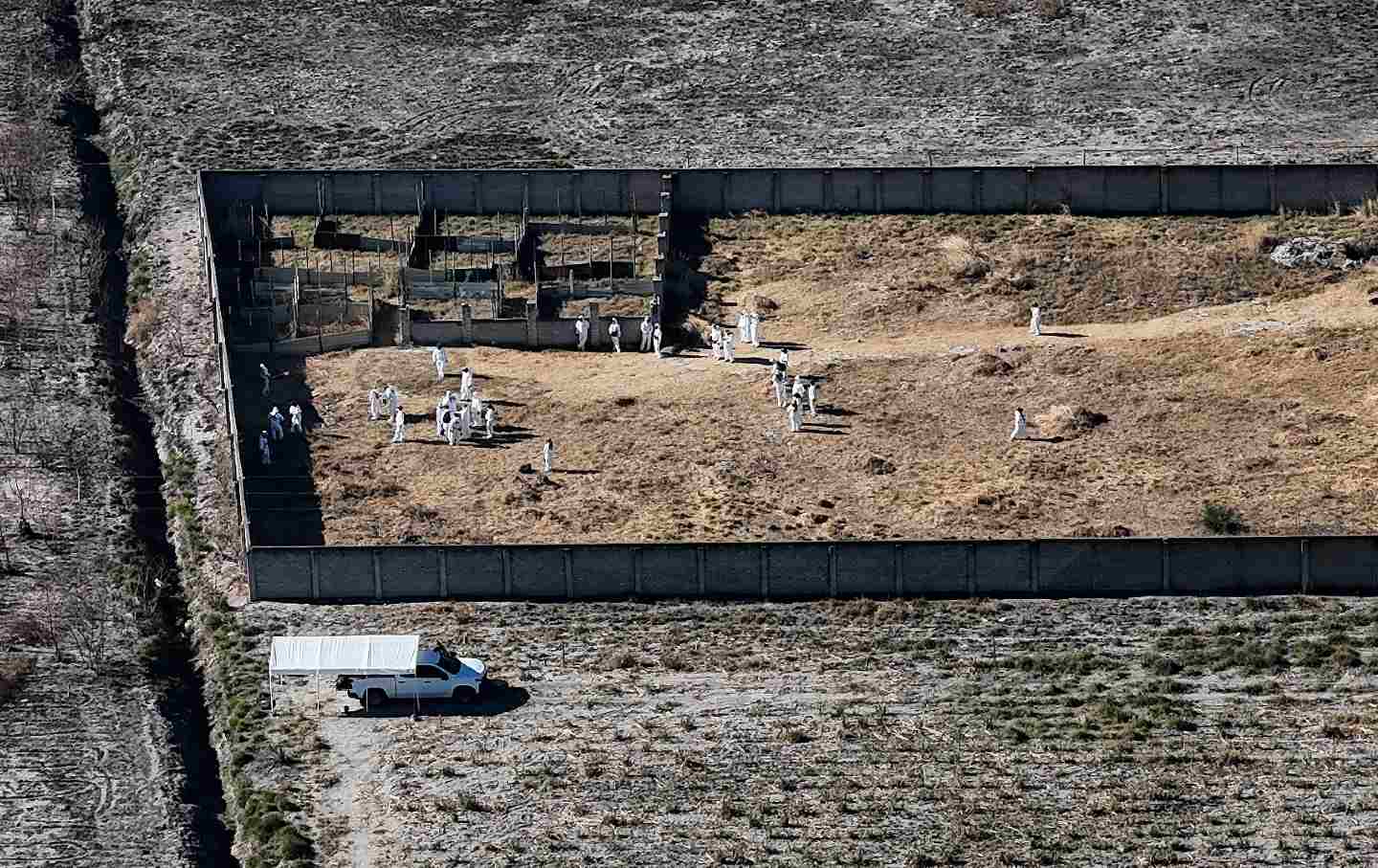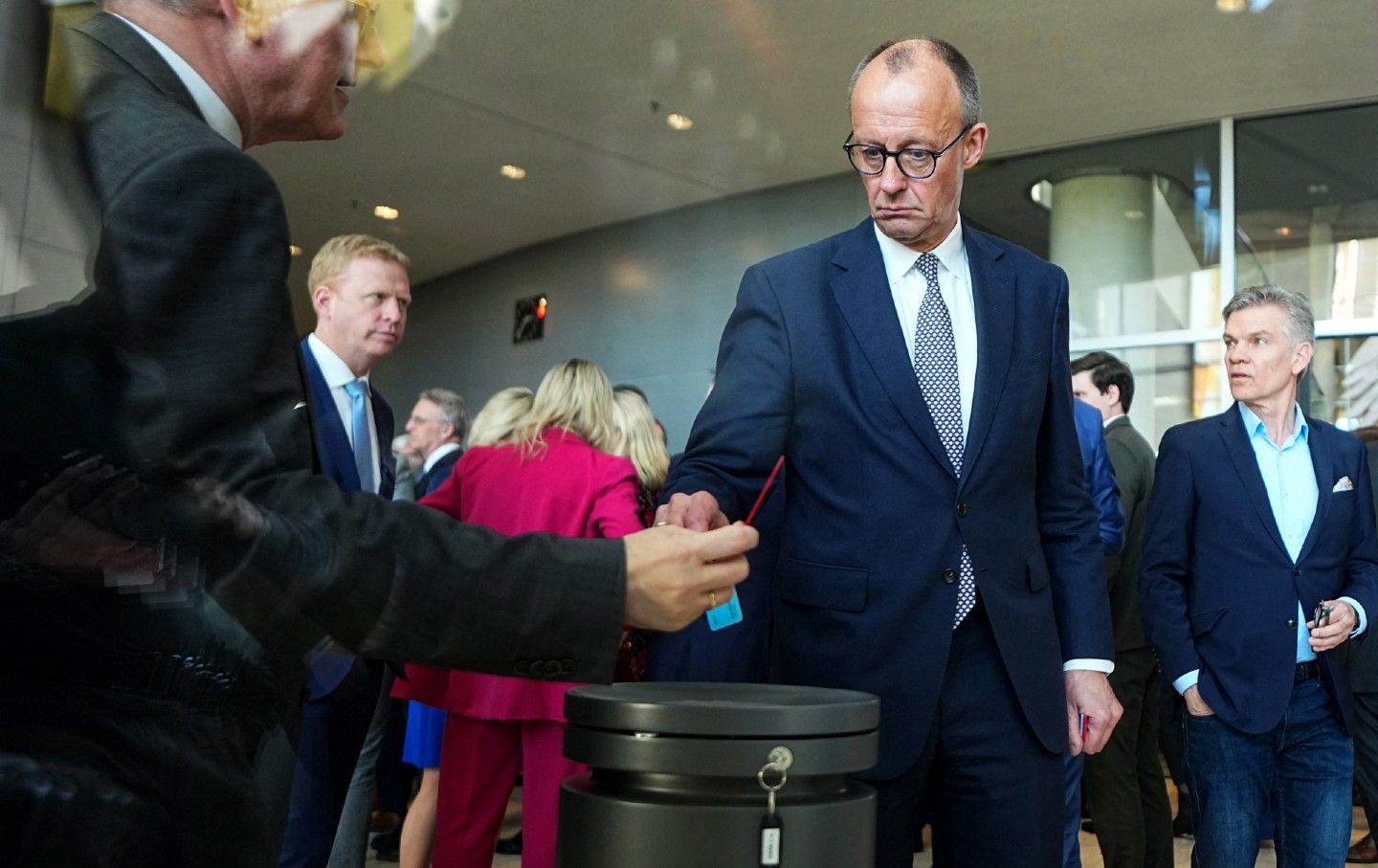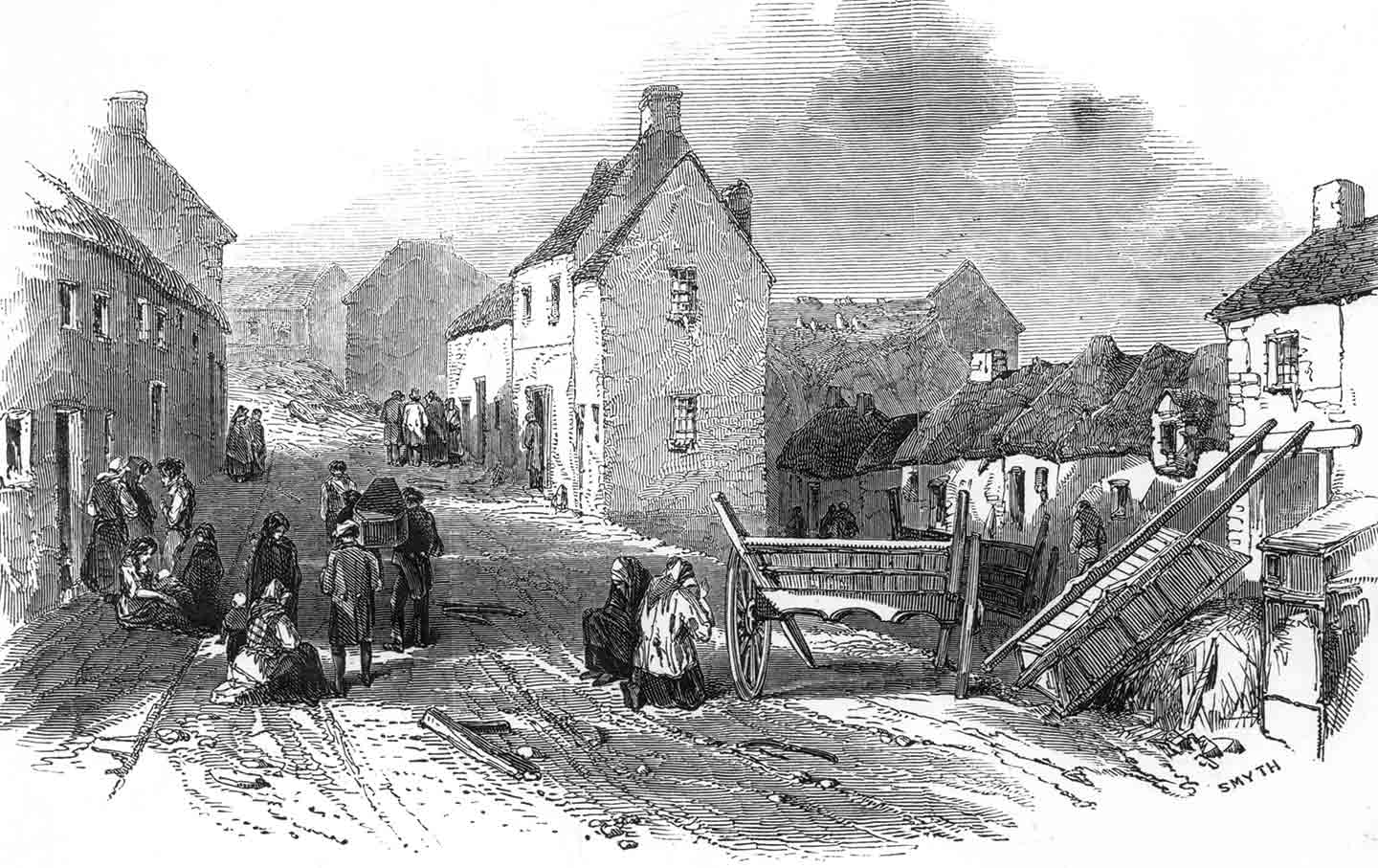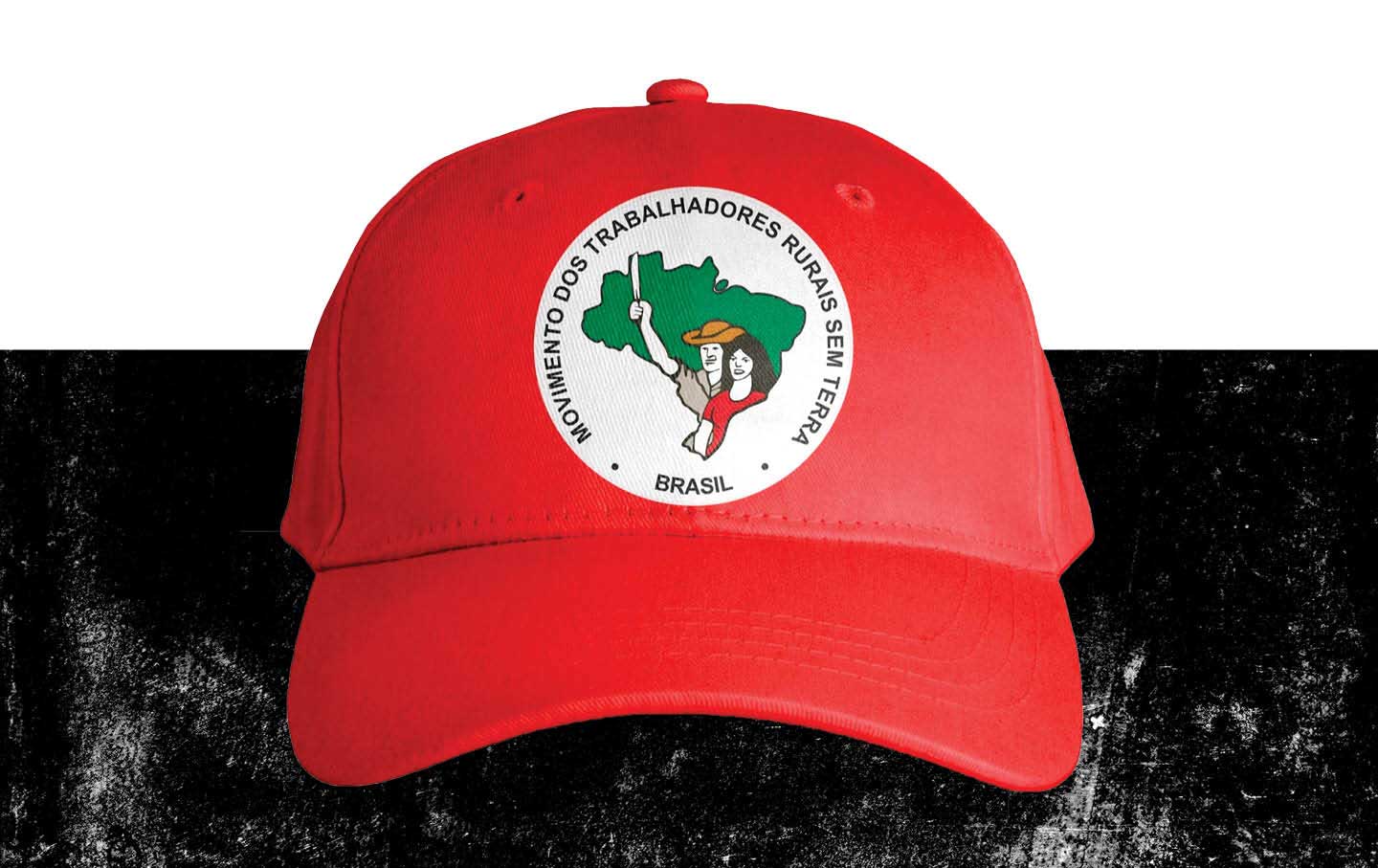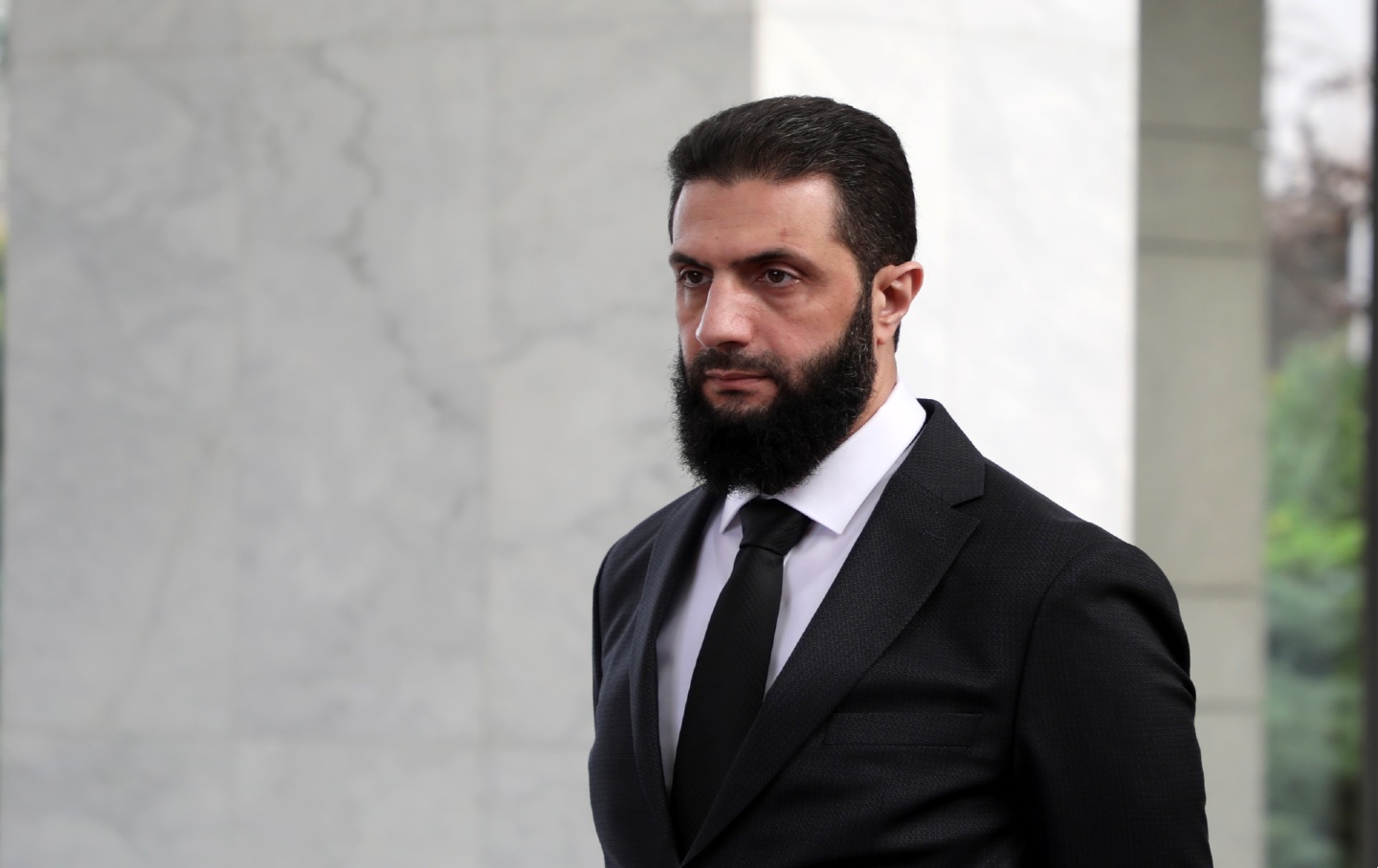Who Will Govern South Africa?
The era of ANC hegemony is over, and Jacob Zuma’s new party is threatening violence if he’s not welcomed into the government.
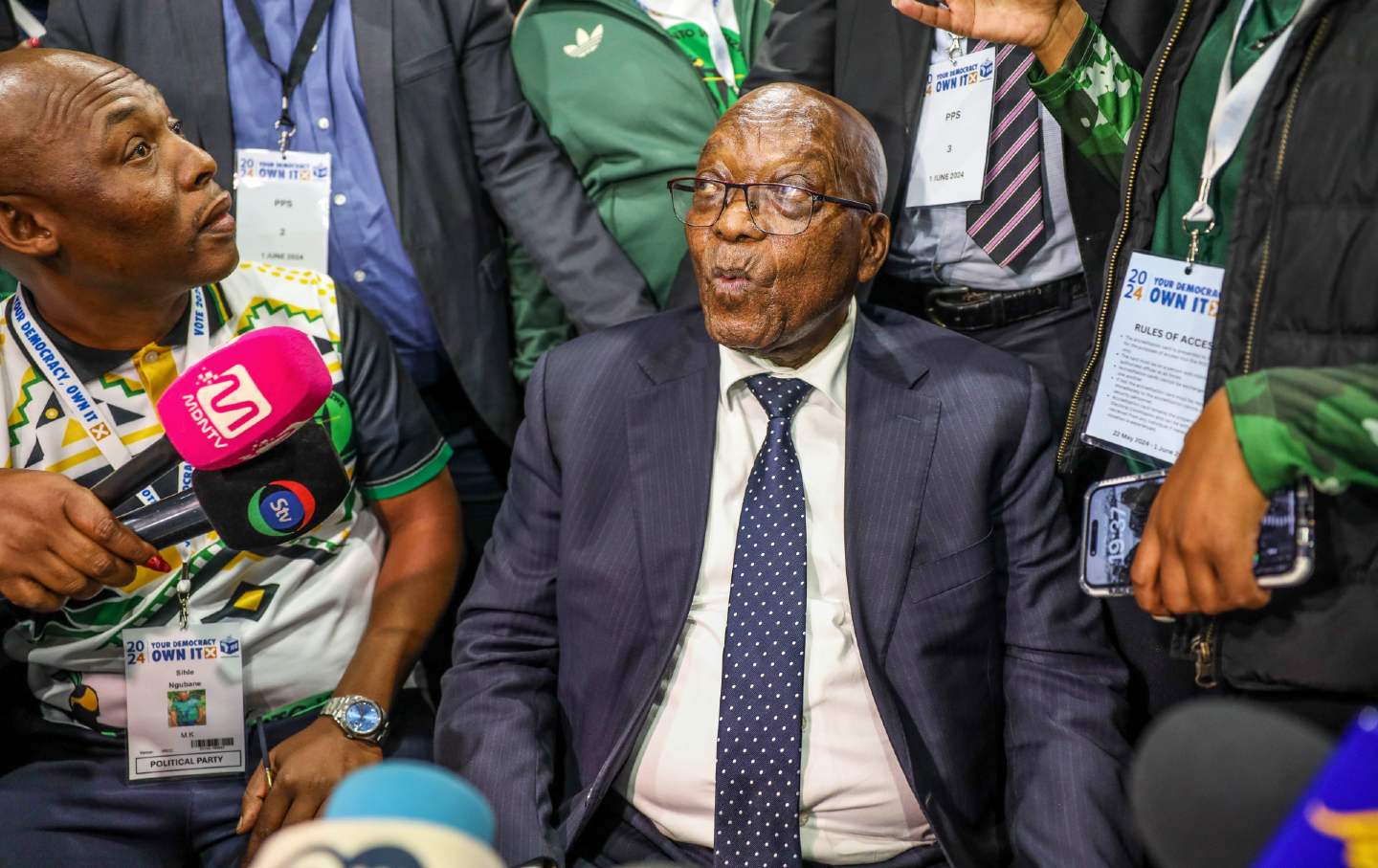
Jacob Zuma, the leader of the uMkhonto weSizwe (MK) Party, reacts to a question at the National Result Operation Centre at Gallagher Estate on June 1, 2024, in Midrand, South Africa.
(Sharon Seretlo / Gallo Images via Getty Images)More than 16 million South Africans—59 percent of registered voters, the lowest turnout on record—braved long queues, device malfunctions, and credible threats of taxi blockades, attacks on voting booths, and assassinations of electoral officials to cast their ballots in what was not a smooth election but was free and fair. But now, even with the vote over, the danger of violent attempts to undermine South African democracy continues.
In what is fast becoming the new global norm, a former president, in this case 82-year-old Jacob Zuma, is challenging the legitimacy of the election results, alleging vote rigging and threatening violence if his demands are not met. The playbook is similar across the world: spend months questioning the integrity of the electoral system, hint at sowing chaos nationwide, and use that threat as leverage in post-election negotiations.
After 30 years of uninterrupted electoral majorities, the African National Congress (ANC) earned less than 50 percent of the vote. The Independent Electoral Commission (IEC) confirmed on Sunday evening that the ANC received 40.22 percent of the vote. While it was widely expected that the ANC would lose its majority, the extent of the collapse was shocking. ANC support plummeted 17 points since the 2019 election. The party now has two weeks to cobble together a governing coalition before the next Parliament sits to elect a president. (In South Africa’s political system, members of Parliament appoint the next president in the first sitting after the election.)
The official opposition, the center-right Democratic Alliance (DA), finished second with 21.7 percent, a slight increase from its 2019 performance, and in third was the wild card of this election: Zuma’s Umkhonto’s wa Sizwe (“Spear of the Nation” in Zulu) or MK Party, named after the armed wing of the ANC during the anti-apartheid struggle, which received 14.6 percent. The radical nationalist Economic Freedom Fighters finished in fourth with 9.5 percent.
To its credit, unlike many other former liberation movements, the ANC has accepted the election results. There will be some sort of coalition either with the DA or with the EFF and a few other small parties (the EFF does not have enough seats by itself to form a coalition) or with MK or a government of national unity with the DA and other small parties. The other option is that the ANC could form a minority government in which opposition parties vote with it to appoint a president and then to pass legislation through government without joining the executive, a move even further into uncharted waters for South African politics.
There are costs to all these options. A coalition with the DA risks alienating large sections of the ANC, who would be angry at governing with a perceived white party opposed to racial redress. An EFF or MK coalition would ignite the wrath of the markets with their demands for the nationalization of major industries and also risks losing the support of those in the ANC who believe in the Constitution and, in the case of MK, are hostile to Zuma and Zulu nationalism. And any deal with MK would solidify the power of mafia politics and the threat to constitutional rule. The MK Party has declared that it is exploring its options to prevent the next Parliament from swearing in a new president, as it doesn’t recognize the election results.
The Zuma factor
Given the extent of the crisis that South Africa finds itself in, the ANC’s decline should come as no surprise. The country is on a GDP per capita basis poorer than it was a decade ago. The official unemployment is 33.9 percent. National scheduled blackouts, dubbed “load shedding,” are routine. And basic government services have collapsed across parts of the country, with water outages in several of the country’s largest and richest cities such as Johannesburg and Durban (thanks in large part to the disastrous coalition governments that control these municipalities). You’d expect an anti-incumbency mood in such an election, but what stands out is that the major beneficiary was a faction that is directly responsible for the mess South Africa finds itself in. This wasn’t exactly a vote for the new but for the old in hastily assembled garb.
The beneficiary of the ANC’s collapse in support was the man who more than anyone else is responsible for the country’s woes, Zuma, whose nine years in power were defined by the handing over of governance to private interests. Despite infighting, allegations of fraud in registering the party, a lack of structure, and a vague policy agenda that includes replacing constitutional rule with parliamentary supremacy, sending pregnant teenagers to Robben Island, and creating a new upper house of Parliament for traditional leaders, the MK Party was able to win significant support, enough to promise an easy majority for an ANC coalition.
If the MK Party forms a coalition with the ANC, the risks for South African democracy are real: It would further entrench the power of mafia networks within the party and perhaps fatally weaken the judiciary and prosecutorial authorities. It might also solidify a new trajectory for the ANC as a party increasingly hostile to constitutional rule and perhaps fatally weaken its commitment to overcoming tribalist politics.
The ANC is paying the price for shielding Zuma from accountability for his past misdeeds. He first faced corruption charges 20 years ago, and ever since he has portrayed himself as the victim of an endless stream of conspiracies, from his rape trial in 2006 to his being accused of corruption in a multibillion-dollar arms deal in the early 2000s (he is set to face his day in court for this later this year). A week before the election, the Constitutional Court—South Africa’s top court—blocked Zuma from standing for Parliament because of a recent criminal conviction for contempt of court, but his face still featured on the ballot come election day.
Before the vote, author Johnny Steinberg wrote that Zuma “alone has mined down to the tectonic plates deep under SA’s social formation and shifted them to produce a politics that brings him power.” This proved true this election, which has been largely defined by Zuma’s political machinations. Despite being launched only in December 2023, the MK Party has shaken the foundations of South African politics, and undermined the party that Zuma once governed on behalf of.
Zuma has been able to maintain significant support among South Africa’s Zulu population, the country’s largest ethnic group. Zuma has long been able to combine his man-of-the-people image with an appeal to tribal pride. He has always claimed to be persecuted because he is Zulu—the ANC has traditionally been dominated by Xhosa elites—and his supporters don T-shirts with the words “100% Zulu boy.” In this election, MK supporters played on the choice between Zuma and incumbent President Cyril Ramaphosa, who is of Venda extraction, in crude tribalist terms. In KwaZulu Natal, the heartland of the Zulu people and the second-largest provincial economy, MK captured nearly 46 percent of the vote. MK also won significant votes in Gauteng, the country’s economic powerhouse, and is the second-largest party in Mpumalanga.
A challenge to democracy
In a speech delivered at the IEC’s electoral-count center on Saturday to a gallery of supporters and journalists, Zuma claimed, without providing any evidence, that the election was rigged. He then demanded a rerun, because his expected “two-thirds majority” (the proportion necessary to change the Constitution) had been stolen by the ANC and the DA on behalf of “white monopoly capital,” which Zuma supporters and other radical nationalists blame for capturing the ANC and impoverishing the country’s Black majority. In a speech outside the Gauteng High Court on Monday morning, Zuma repeated these sentiments, claiming, “They are provoking us. We haven’t left this matter alone. We are going to walk slowly with them. We are the smartest in South Africa.… We won’t back down.”
In the months leading up to the election, Zuma and his supporters said the IEC would help steal the election and that there would be violence if the MK Party did not win a two-thirds majority. And as South Africans agonized over the slow count of the election, a wave of coordinated disinformation questioning the election results flooded social media via various influencers and MK Party officials.
Now, in nearly every South African election, a losing party that fails to make Parliament or sees disastrous results challenges the IEC, claiming that its votes had been stolen, but this time it’s the success story of the election, the MK Party, doing it as part of a negotiating strategy to destabilize the democratic process. The MK Party is, in effect, holding a gun to the country’s head to secure a more favorable position in the next government. Zuma is trying to block a coalition between the ANC and the DA and ensure protection from prosecution and his triumphant return to the inner sanctums of the ANC.
Popular
“swipe left below to view more authors”Swipe →Zuma’s threats of violent disruption are credible. When he was imprisoned in July 2021 for contempt of court, his supporters—including mafia members, political leaders, and rogue elements of the security apparatus—unleashed the worst political violence South Africa has seen since the end of apartheid. In KwaZulu Natal and Gauteng, South Africa’s two most populated provinces, 350 people were killed, and the country suffered billions of dollars in economic damage. None of the organizers of the violence have ever been held accountable. South Africans can only hope the security forces are better prepared this time if violence does break out.
What comes next?
Zuma and the MK Party are uninterested in governing in the traditional sense. For Zuma, his return to politics is about revenge against those who forced him out of office in 2019, and for the MK Party this is about dividing the spoils of government largesse. The party may well fall apart in bloody infighting before the next election in 2029, and without Zuma, there is little to hold it together. Given that the party said it would finalize its structures only after the election, the jostling for positions has already started, and there is high potential for violence and disorder.
More on South Africa
In some respects, this is South Africa’s right-populist moment, in the sense that the insurgent forces are forms of ethno-nationalist mafia politics. South Africa ranks seventh in the world on the Global Initiative Against Transnational Organized Crime index. Mafia politics in South Africa involves the capacity to mobilize political support by claiming to be acting for the common interest of excluded groups. While South Africa’s populist forces are not exactly on the same page politically, they share a hostility to the Constitution and a tendency to militarize politics. Most voters still support relatively moderate center-right or center-left pro-Constitution parties, but it remains to be seen if the traditional parties can respond credibly to the new political reality.
South Africa’s future is uncertain. The ANC will form some sort of government, but it is hard to imagine that stability or consolidation will be achieved so long as Zuma and his allies are willing to hold the threat of political violence over the country. It is vital that those who support the Constitution make the compromises necessary to form a government and work together to restore state capacity and offer a better future for all citizens. The era of ANC hegemony is over, and no one know what comes next.

